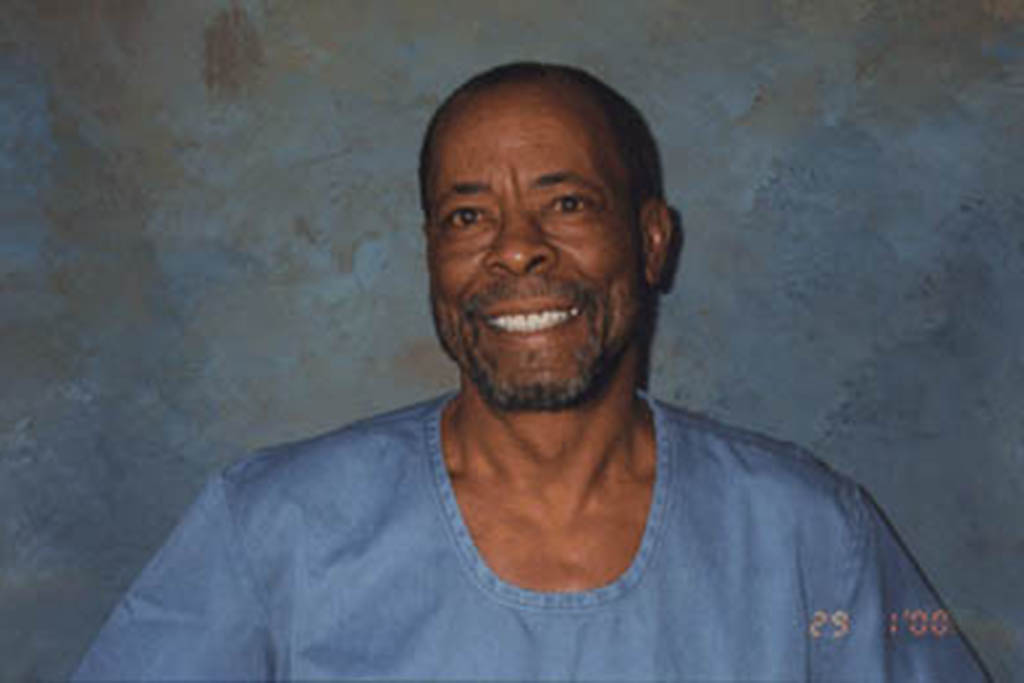Former Black Panther Sundiata Acoli Granted Parole At 85
Source: Sundiataacoli.org / Sundiataacoli.org
After nearly 50 years in prison, Sundiata Acoli is finally going home to spend his remaining days with his daughter and loved ones. The New Jersey Supreme Court released its decision Tuesday morning granting Acoli’s bid for freedom.
Setting aside any political concerns underlying Acoli’s case, the state Supreme Court determined the parole board’s continued denial was “not supported by substantial evidence in the record or by a reasonable weighing of the relevant factors in N.J.A.C. 10A:71-3.11(b) that govern parole.”
“Even under the most deferential standard of review, the Board has failed to prove by a preponderance of the evidence that there is a substantial likelihood that, if released on parole, Acoli will commit a crime,” read the decision. “Acoli must be released because the statutory standards for granting parole have been met, without regard to extraneous factors like sympathy or passion or public opinion.”
Advocates were pleased with court’s decision.
“We applaud the New Jersey Supreme Court in granting Mr. Acoli’s freedom and correcting the parole board’s improper application of the law by denying his petition for release after serving more than 49 years in prison,” said Soffiyah Elijah, Civil Rights attorney and one of the primary advocates for Acoli. “It’s time now for Mr. Acoli to live the rest of his life in the loving care of his family and community,” Elijah added.
FREE ALL POLITICAL PRISONERS!!! https://t.co/8rbsT5YlSZ
— ReBuild Collective (@ReBuild2Win) May 10, 2022
The preponderance of the evidence standard burden on the state is relatively low compared to the reasonable doubt standard present in criminal proceedings. New Jersey Gov. Phil Murphy issued a statement expressing his disappointment and choosing to lionize law enforcement as “heroes” without any acknowledgment of why the parole board made its determination. The New Jersey State Police similarly expressed disappointment in a Facebook post.
I am deeply disappointed that Sundiata Acoli, a man who murdered Trooper Werner Foerster in 1973, will be released from prison. Our men and women in uniform are heroes, and anyone who would take the life of an officer on duty should remain behind bars until the end of their life. pic.twitter.com/xCRTz5ms30
— Governor Phil Murphy (@GovMurphy) May 10, 2022
But as the state Supreme Court noted personal feelings and opinions have no bearing on the determination of whether Acoli was eligible for parole based on his conviction arising out of the 1973 killing of Trooper Werner Foerster. According to the court’s majority, the applicable law is clear in the proper outcome.
As NewsOne reported in January, Acoli’s release was backed by several groups, including Black law enforcement organizations.
“Holistic review of the parole hearing transcript from the full June 2016 hearing suggests the Parole Board does not fear Mr. Acoli has a substantial likelihood of future criminal activity,” explained the Black law enforcement groups in a brief supporting Acoli’s appeal. “Rather, the questioning by Parole Board members reveals a deep-seated discomfort with Mr. Acoli’s political affiliations and beliefs, anger and frustration at his unwillingness to accede to the facts of the crime as found by the jury which he has always maintained he does not remember, and concern that he has not been sufficiently punished even after all these years. Dissatisfaction with an old man’s contrition and memory does not equate to credible evidence of a substantial likelihood that he will commit a crime if released.”
His case also put a spotlight on the issues involved with those aging while incarcerated and the punitive approach of some state parole boards. Estimates suggest that continued incarceration of older individuals costs twice as much as a younger person, given the additional health needs with age.
Lumumba Bandele, a coordinator with the Bring Sundiata Acoli Home Alliance and organizer with the Malcolm X Grassroots Movement, challenged the arbitrary withholding of parole.
“What we found nationally is there is a huge problem around parole, and people utilizing parole as a punitive measure,” Bandele said.
It’s hard to believe the nature of the underlying charge and the politics surrounding his arrest and conviction had nothing to do with the continued incarceration. But as the state supreme court noted, it’s of no consequence to the statutory factors laid out for establishing whether Acoli was eligible for release.
As news of Acoli’s pending release spread, the Release Aging People in Prison Campaign held a justice day action in Albany, New York. One speaker said that “revenge and perpetual punishment does not equal justice.”
HAPPENING NOW: Parole Justice is Elder Justice press conference “revenge and perpetual punishment does not equal justice.” @ttgyal444 pic.twitter.com/bHdL0Uw5RD
— Release Aging People in Prison Campaign (@RAPPcampaign) May 10, 2022
The group advocates for parole justice as a part of elder justice. A 2015 report by the Center for Justice at Columbia University argued that reducing elder incarceration is a part of comprehensive public safety strategies. The movement to release aging people has been widespread with recognition of how the application of state laws effectively converted some sentences to de-facto life sentences.
While Acoli won his appeal, he still has yet to be released into the care of his daughter and loved ones. His family is one of many waiting for the return of their loved ones.
“There are, unfortunately, dozens of other incarcerated movement elders who are in similar positions, almost all of them are battling health issues and not just health issues, but life-threatening health issues,” Bandele previously explained.
SEE ALSO:
Assata Shakur’s Co-Defendant Sundiata Acoli Fights For His Freedom After Nearly 50 Years In Prison
Kathy Boudin, Activist Who Served 22 Years In Prison Dies at 78
Free Mutulu Campaign Celebrates Human Rights Day With A ‘Fête For Freedom’
Black August Is Over, But The Fight For Black Liberation Continues

